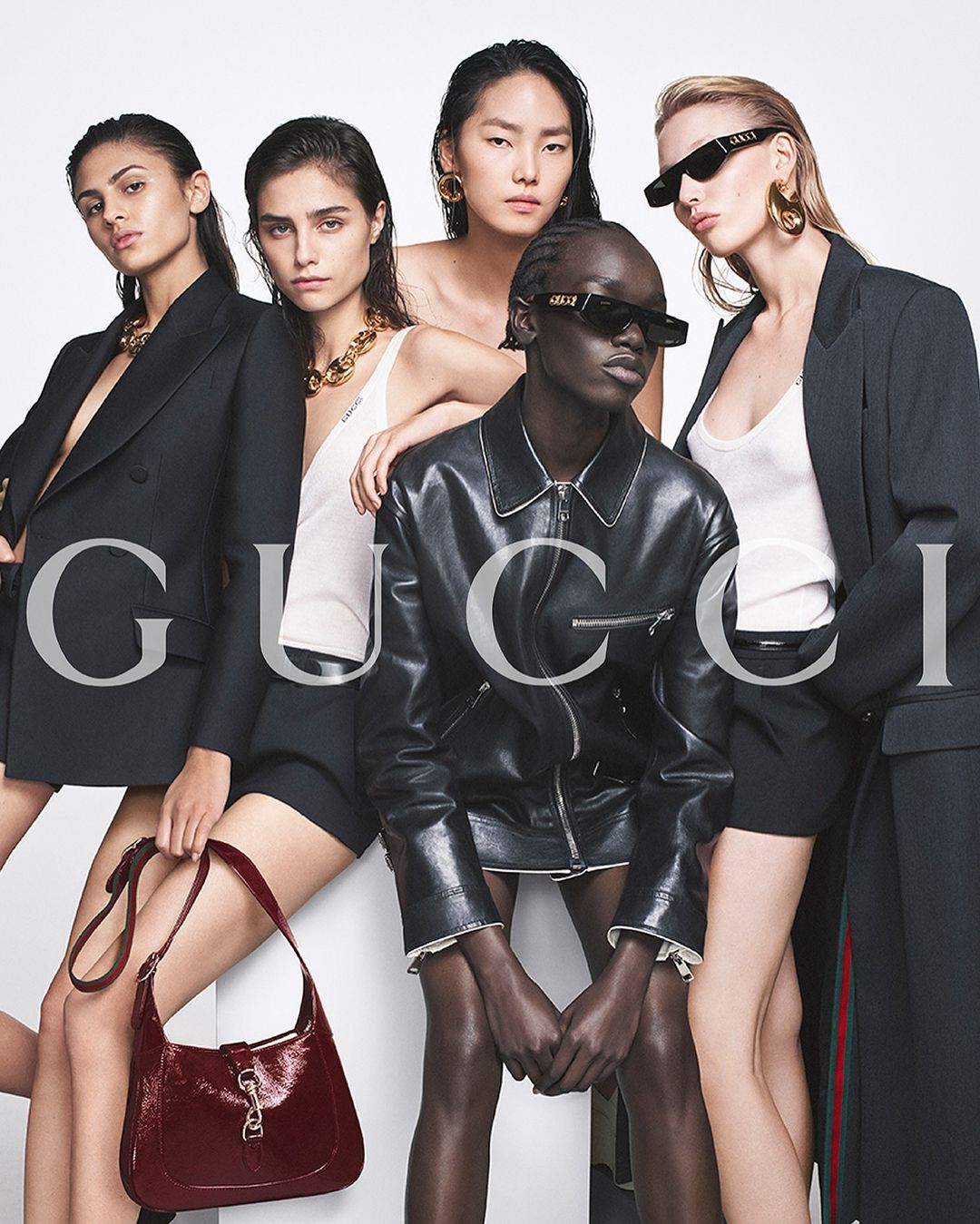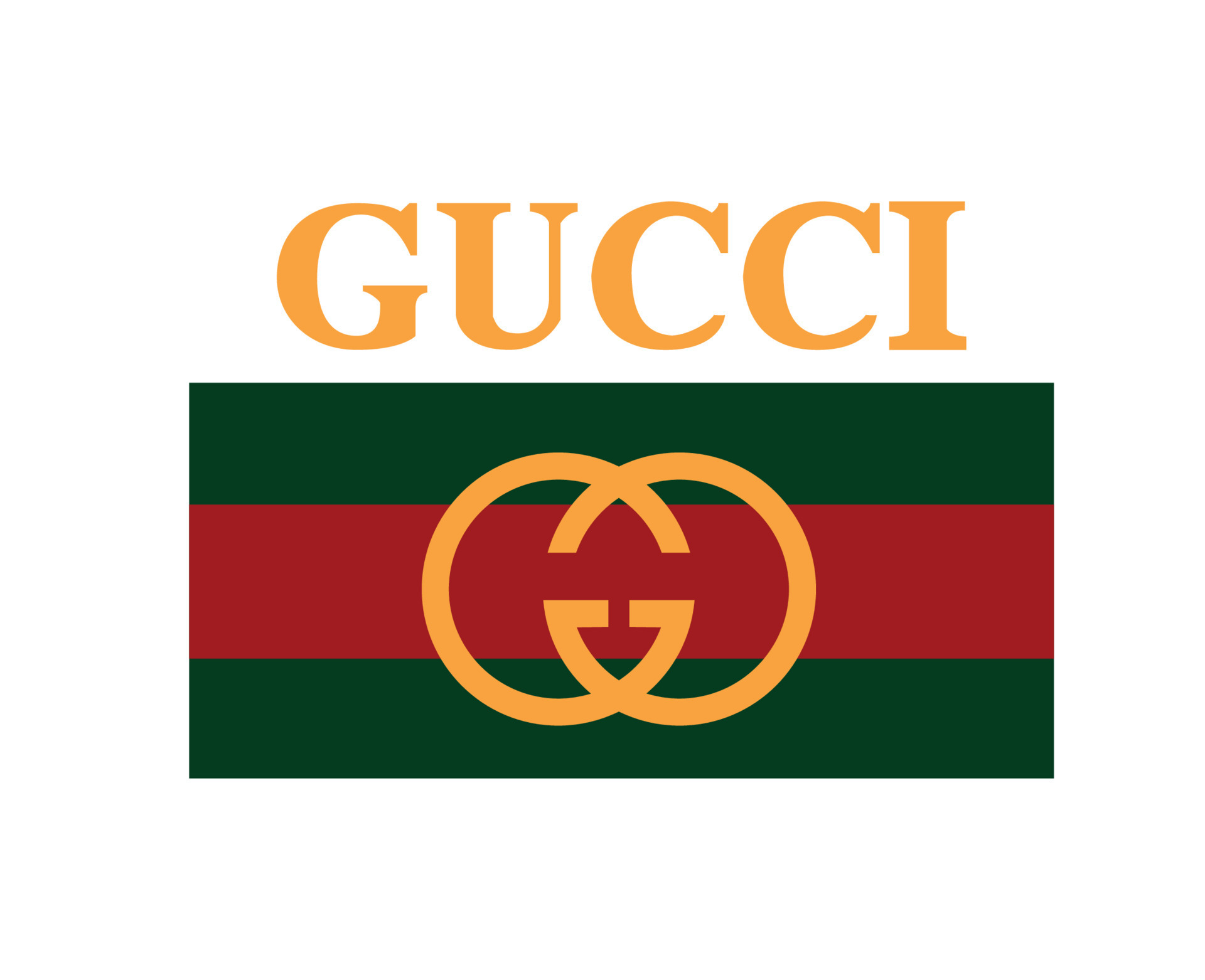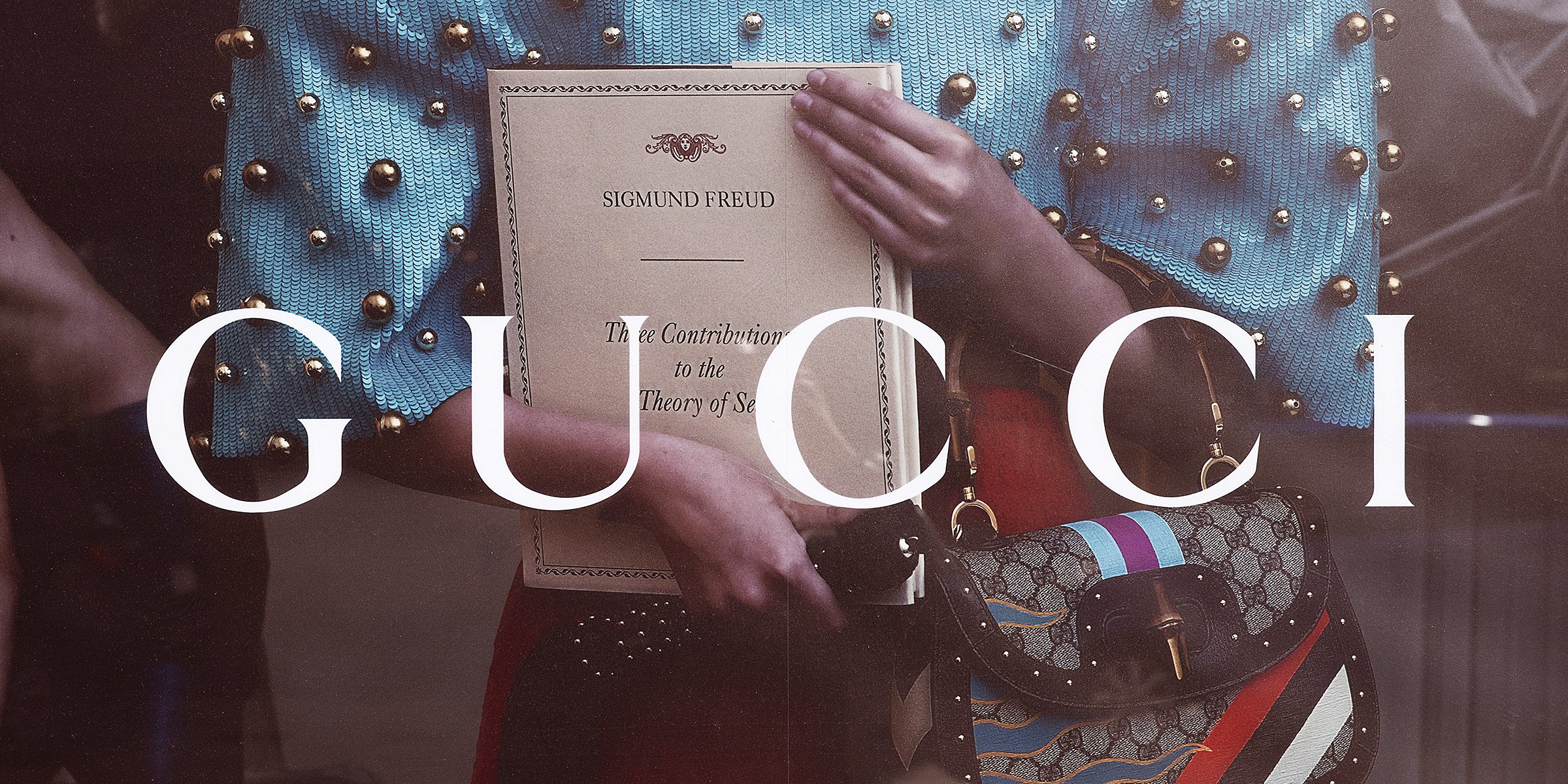Unveiling The Unseen: Beyond Gucci's Glamour And Hidden Vulnerabilities
In a world often captivated by the allure of luxury brands like Gucci, we frequently encounter narratives of perfection, success, and an aspirational lifestyle. Yet, beneath this polished veneer, lies a complex human experience, sometimes marked by unforeseen challenges and hidden vulnerabilities. The phrase "Gucci third leg HSV" might initially seem perplexing, a bizarre juxtaposition of high fashion and a health concern, but it can serve as a potent metaphor for the often-unspoken realities that exist even within the most seemingly flawless lives.
This article delves into the symbolic meaning behind such an unusual combination, exploring how external perceptions of luxury can sometimes mask internal struggles, and how the pursuit of an ideal image can inadvertently create pressure or anxiety. We will examine the power of branding, the human desire for acceptance, and the importance of authenticity in navigating life's complexities, drawing parallels to the broader societal impact of perceived imperfections.
Table of Contents
- The Allure of Gucci: A Symbol of Aspiration
- Decoding "Third Leg": The Unseen Dimensions of Life
- "HSV" as a Metaphor: Navigating Stigma and Vulnerability
- The Psychology of Perception: Image vs. Reality
- Luxury and Well-being: A Complex Interplay
- Building Resilience in a Perfection-Driven World
- Embracing Authenticity: The True Mark of Luxury
- Beyond the Brand: Fostering Genuine Connection
The Allure of Gucci: A Symbol of Aspiration
Gucci stands as a titan in the world of luxury fashion, a name synonymous with unparalleled craftsmanship, innovative design, and a heritage deeply rooted in Italian artistry. For many, to own a piece of Gucci is not merely to possess an item; it's to acquire a symbol of status, success, and a coveted lifestyle. Whether you Shop at the official site of gucci us or Explore gucci's luxury fashion collection at saks fifth avenue, featuring designer clothing, shoes, handbags, and more, the brand consistently evokes a sense of aspirational living.
The appeal is multifaceted. From handbags to travel bags, gucci bags feature sophisticated designs for life on the go, seamlessly blending practicality with high-end aesthetics. The brand's commitment to quality is evident in every stitch, every material choice, reflecting decades of dedication to excellence. Consider the timeless elegance of the Gucci guilty essence pour homme eau de toilette 3 piece father's day gift set, which boasts a 4.5 out of 5 stars rating from 487 reviews, a testament to its enduring popularity and perceived value. Even items like the Erin gg monogram bit slingback flats become more than just footwear; they are statements of refined taste.
Gucci's narrative is one of celebrating creativity and Italian craftsmanship, inviting consumers to Discover the world of gucci. When you Shop the collection of gucci designer handbags, crossbody bags & shoulder bags for women, all made in italy, you're investing in a legacy. The convenience of Enjoy free shipping, returns & gift wrapping further enhances the luxury experience, making the acquisition of these iconic pieces feel seamless and exclusive. Ultimately, to Explore iconic fashion and accessories crafted with italian craftsmanship and timeless style is to engage with a brand that has meticulously built an image of perfection and desirability, setting a benchmark for what it means to live a life of perceived success.
Decoding "Third Leg": The Unseen Dimensions of Life
The phrase "third leg" in the context of "Gucci third leg HSV" is not to be taken literally as an anatomical reference. Instead, it serves as a powerful, albeit unconventional, metaphor. It represents something extra, an unforeseen complication, or a hidden aspect that exists beneath the polished surface of an ideal life. In a world where luxury brands like Gucci project an image of effortless perfection, the "third leg" symbolizes the private struggles, insecurities, or vulnerabilities that individuals carry, often concealed behind a facade of success or glamour.
These unseen dimensions of life are the challenges that don't fit neatly into the curated narratives we present to the world. They are the anxieties about financial stability despite outward displays of wealth, the personal health battles fought in private, the relationship complexities hidden behind a perfect family photo, or the imposter syndrome felt by someone at the pinnacle of their career. The pressure to maintain appearances, especially when surrounded by the perceived perfection that brands like Gucci embody, can be immense. This "third leg" is the unexpected burden, the quiet struggle that adds an unforeseen layer of complexity to an otherwise seemingly flawless existence, highlighting the often-stark contrast between external presentation and internal reality.
"HSV" as a Metaphor: Navigating Stigma and Vulnerability
In the context of "Gucci third leg HSV," the inclusion of "HSV" is not meant to imply any direct link between luxury goods and a medical condition, nor is this article providing medical advice. Rather, "HSV" (Herpes Simplex Virus) is used here purely as a potent metaphor for any personal challenge, perceived flaw, or chronic issue—whether physical, mental, or emotional—that carries a social stigma or creates internal discomfort. It represents the "imperfection" that, despite being common or manageable, can profoundly impact an individual's self-worth and confidence, regardless of their external achievements or the luxury lifestyle they might lead.
The Weight of Perceived Imperfection
The metaphorical "HSV" speaks to the universal human experience of carrying something that feels less than ideal, something that might be judged or misunderstood by others. It could be a chronic illness, a mental health struggle like anxiety or depression, a past mistake, a non-normative identity, or even just a deep-seated insecurity about one's appearance or abilities. These "imperfections" often come with a heavy emotional weight, leading to feelings of shame, isolation, and a constant fear of exposure. Even someone adorned in the finest Gucci attire, projecting an image of ultimate confidence and success, can be battling an intense internal struggle, a metaphorical "HSV" that undermines their sense of completeness.
The irony is profound: while society often celebrates external markers of success and beauty, it simultaneously creates an environment where perceived flaws are hidden and stigmatized. This creates a cycle where individuals feel compelled to maintain a perfect facade, further isolating them in their struggles. The pressure to live up to an unattainable ideal, often amplified by social media and consumer culture, means that any deviation from this ideal can feel like a profound personal failure, regardless of how minor or common it might actually be.
Beyond the Surface: The Human Element
At its core, the metaphorical "HSV" highlights the fundamental human desire for acceptance and belonging. We are social creatures, wired to seek connection and validation. When we perceive ourselves as having a "flaw" or a "stigma," it triggers a primal fear of rejection. This fear can lead to elaborate strategies of concealment, where individuals invest heavily in external markers of success—like luxury brands such as Gucci—to compensate for internal feelings of inadequacy. The pursuit of an impeccable image becomes a shield, a way to deflect potential judgment and maintain a sense of control over how one is perceived.
However, this strategy often backfires, leading to deeper isolation. The more perfect the facade, the harder it becomes to reveal one's true self, including the vulnerabilities and challenges that make us human. The metaphorical "Gucci third leg HSV" therefore serves as a poignant reminder that true well-being stems not from the absence of perceived imperfections, but from the courage to acknowledge them, to seek support, and to embrace the full spectrum of the human experience, beyond the curated image.
The Psychology of Perception: Image vs. Reality
Our modern world, heavily influenced by digital platforms, thrives on the construction and projection of ideal images. From the glossy advertisements of Gucci to the meticulously curated feeds on social media, we are constantly bombarded with visions of perfect lives, perfect bodies, and perfect happiness. This relentless exposure profoundly impacts our psychology, shaping our perceptions of what success and well-being should look like.
The gap between this projected image and an individual's lived reality can be a significant source of psychological distress. We often compare our authentic, messy internal lives with the polished, external presentations of others, leading to feelings of inadequacy, envy, and dissatisfaction. This phenomenon, often termed "social comparison theory," suggests that humans inherently evaluate themselves by comparing with others. When the benchmark is an unattainable ideal, whether set by luxury brands or social media influencers, the outcome is often negative self-perception.
Furthermore, the pressure to maintain an impeccable image, especially for those who genuinely strive for success or are in the public eye, can lead to cognitive dissonance. This is the mental discomfort experienced when one's beliefs, attitudes, or behaviors contradict each other. For instance, someone might genuinely value authenticity but feel compelled to present a flawless exterior to meet societal expectations. This internal conflict can manifest as anxiety, stress, and a diminished sense of self-worth. The pursuit of a "Gucci" lifestyle, while outwardly rewarding, can paradoxically intensify these internal struggles if it's driven by a need for external validation rather than genuine personal fulfillment.
Luxury and Well-being: A Complex Interplay
The relationship between luxury and well-being is far more nuanced than simply equating material wealth with happiness. While owning designer items, enjoying exclusive experiences, or living a life adorned with Gucci products can provide moments of pleasure and a sense of accomplishment, research consistently shows that the satisfaction derived from material possessions is often fleeting. This concept is known as the "hedonic treadmill," where individuals continuously adapt to higher levels of consumption, requiring ever-greater material gains to maintain the same level of happiness.
True well-being encompasses a holistic state of mental, emotional, and physical health. It involves a sense of purpose, meaningful relationships, resilience in the face of adversity, and a fundamental acceptance of oneself. While financial security can alleviate certain stressors, an abundance of luxury goods does not automatically translate into inner peace or freedom from personal struggles. In fact, for some, the pressure to maintain a certain lifestyle, to keep up appearances, or to constantly acquire more can become a source of significant stress and anxiety.
Even individuals who appear to have it all – the high-flying careers, the beautiful homes, the latest Gucci collections – can face profound personal challenges. These might include loneliness, burnout, mental health issues, or the quiet battles represented by the metaphorical "Gucci third leg HSV." The external markers of success can sometimes mask deep-seated vulnerabilities, making it harder for these individuals to seek help or admit their struggles, for fear of shattering the perfect image they've painstakingly built. This highlights that genuine well-being is an internal state, cultivated through self-awareness, self-compassion, and authentic connection, rather than solely through external acquisitions.
Building Resilience in a Perfection-Driven World
Navigating a world that often demands perfection, where the allure of brands like Gucci sets high standards for external presentation, requires a robust sense of personal resilience. This resilience isn't about being immune to challenges or never feeling vulnerable; it's about the capacity to bounce back from adversity, adapt to change, and maintain one's well-being despite pressures and setbacks.
One crucial strategy for building resilience is developing self-compassion and acceptance. Instead of striving for an unattainable ideal of flawlessness, embracing the full spectrum of one's human experience—including perceived imperfections or the metaphorical "Gucci third leg HSV"—is vital. This involves treating oneself with the same kindness and understanding one would offer a close friend, especially during times of struggle. Recognizing that imperfection is a universal part of the human condition can significantly reduce feelings of shame and isolation.
Furthermore, cultivating a strong and authentic support system is paramount. Surrounding oneself with individuals who value genuine connection over superficial appearances can provide a safe space to express vulnerabilities and receive empathetic understanding. Focusing on intrinsic values—such as personal growth, meaningful relationships, and contributing to something larger than oneself—rather than solely on extrinsic validation like material possessions or social status, also strengthens resilience. When self-worth is rooted internally, external pressures and the pursuit of an ideal image become less impactful, allowing for greater peace and stability.
Embracing Authenticity: The True Mark of Luxury
In a society that often equates luxury with external displays of wealth and perfection, there is a growing realization that true luxury lies in something far more profound: authenticity. This isn't about rejecting the beauty or craftsmanship of brands like Gucci, but about understanding that genuine fulfillment and peace come from living in alignment with one's true self, unburdened by the constant need for external validation or the concealment of perceived flaws. The metaphorical "Gucci third leg HSV" reminds us that even amidst outward glamour, internal struggles persist, and it is through embracing our authentic selves that we find liberation.
Redefining Wealth: Inner Peace and Self-Acceptance
If traditional wealth is measured in assets and possessions, a redefined sense of wealth centers on inner peace, self-acceptance, and emotional well-being. This perspective suggests that the most valuable possessions are not designer handbags or luxury cars, but rather a calm mind, a compassionate heart, and the freedom that comes from shedding the need to constantly impress others. When individuals embrace their authentic selves, including their vulnerabilities and the metaphorical "HSV" they might carry, they unlock a deeper sense of contentment that no material acquisition can replicate. This self-acceptance fosters a robust inner resilience, allowing one to navigate life's challenges with grace and integrity.
The Power of Vulnerability and Connection
Embracing authenticity also involves understanding the profound power of vulnerability. While counterintuitive in a world that often rewards strength and stoicism, allowing oneself to be truly seen—including one's struggles and imperfections—is the cornerstone of genuine human connection. When we share our authentic selves, we invite empathy and understanding from others, breaking down the walls of isolation that perfectionism often builds. This act of vulnerability can transform relationships, fostering deeper bonds built on trust and mutual respect, rather than superficial admiration. It creates a space where the metaphorical "Gucci third leg HSV" can be acknowledged without shame, leading to healing and a sense of belonging.
Beyond the Brand: Fostering Genuine Connection
Ultimately, the exploration of "Gucci third leg HSV" as a metaphor leads us to a crucial realization: while brands like Gucci offer aspirational visions of success and beauty, true human flourishing transcends material possessions. The deepest satisfaction and most profound sense of belonging come from genuine connection—relationships built on empathy, understanding, and shared humanity, rather than superficial judgments based on status or external appearances.
Moving beyond the brand means shifting our focus from what we own or how we appear to others, to how we connect with ourselves and with the people around us. It involves cultivating a culture where vulnerability is seen as a strength, where imperfections are acknowledged with compassion, and where support is offered without judgment. When we understand that everyone, regardless of their external success or the luxury items they possess, carries their own set of "hidden vulnerabilities" (the metaphorical "Gucci third leg HSV"), we become more empathetic and less prone to judgment.
Fostering genuine connection means actively listening, practicing empathy, and creating safe spaces for open communication. It means recognizing that true wealth lies not in accumulation, but in the richness of our relationships and the depth of our self-acceptance. By prioritizing authenticity and human connection, we can build a more compassionate and understanding society, where individuals are valued for who they are, not just for what they present to the world.
Conclusion
The unusual phrase "Gucci third leg HSV" serves as a powerful, albeit abstract, metaphor for the intricate relationship between outward appearances, the pursuit of luxury, and the often-hidden vulnerabilities that define the human experience. It highlights the stark contrast between the polished, aspirational image projected by brands like Gucci and the internal struggles, perceived imperfections, or stigmatized challenges that individuals may quietly carry. This article has explored how the pressure to maintain an ideal image can lead to psychological distress, emphasizing that true well-being transcends material possessions and superficial validation.
Ultimately, genuine fulfillment and lasting peace are found not in the relentless pursuit of external perfection, but in embracing authenticity, practicing self-compassion, and fostering meaningful connections. True luxury, in this sense, is the freedom to be one's authentic self, vulnerabilities and all. We encourage you to reflect on your own journey towards authenticity and to consider how you can cultivate a greater sense of self-acceptance and genuine connection in your life. Share your thoughts in the comments below, and let's continue the conversation about balancing image with reality in our modern world.

GUCCI SS24 "An Ode to Photography" Under Sabato De Sarno

Gucci Brand Logo Clothes With Name Symbol Design Fashion Vector

38 Gucci Quotes for those who Fancy the Quintessential Luxury Brand